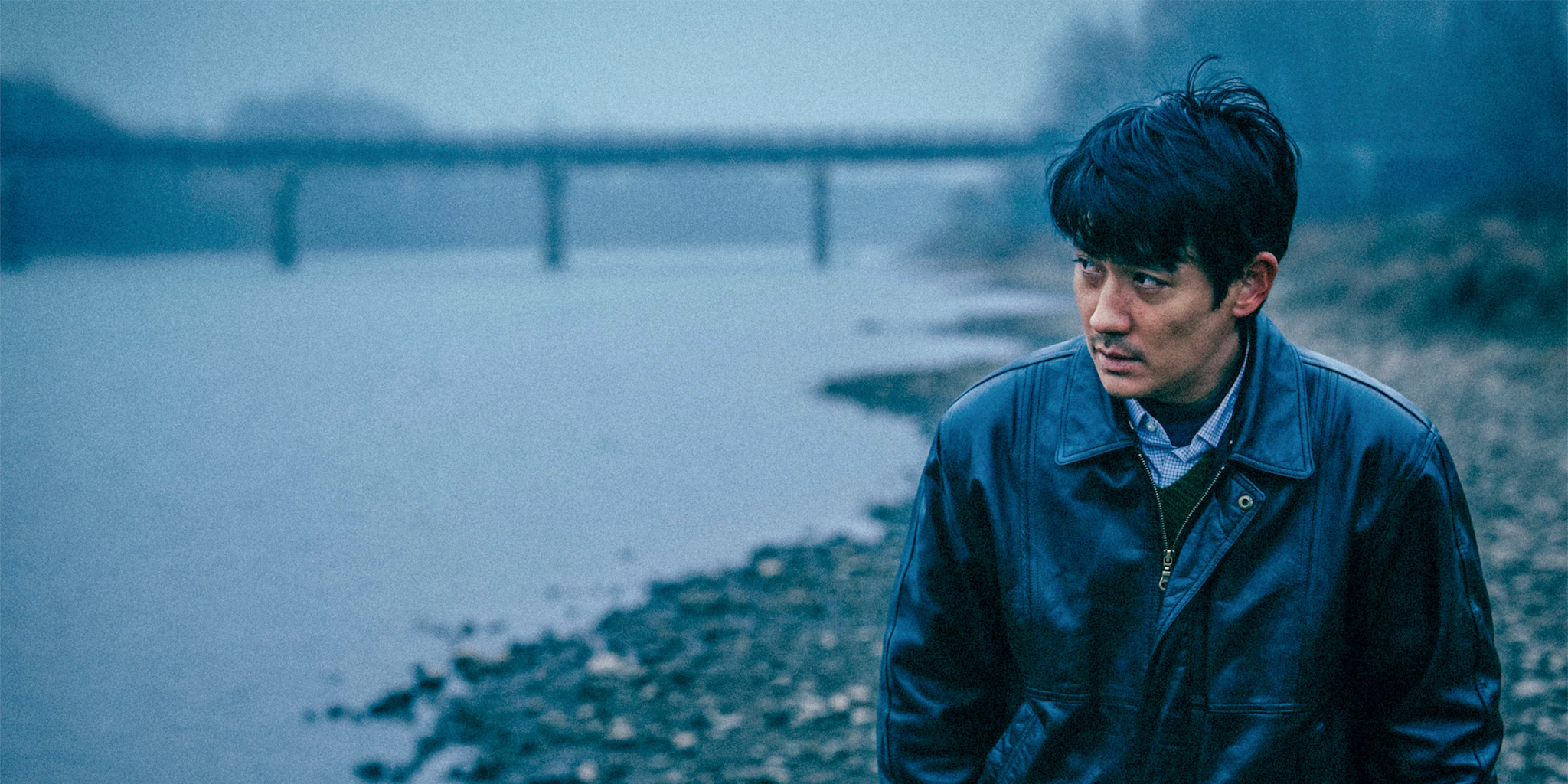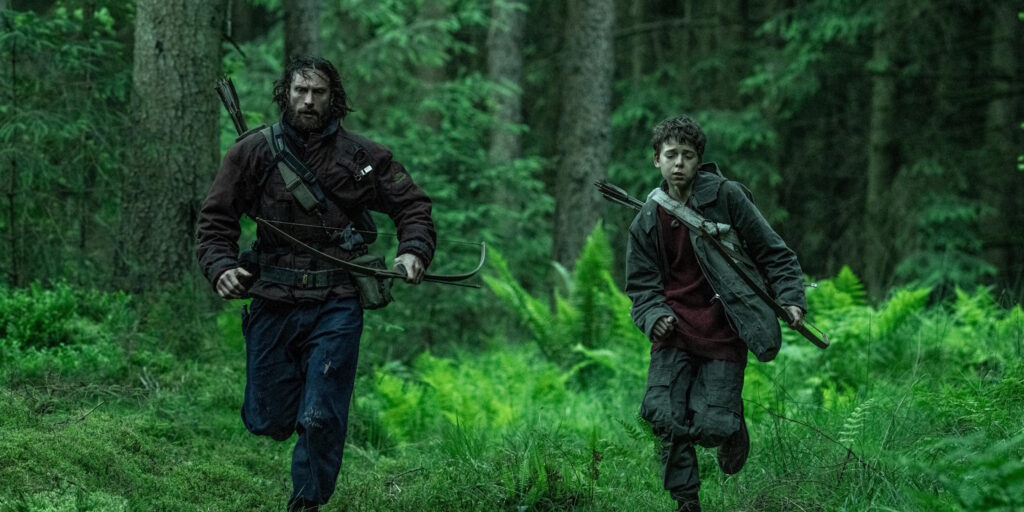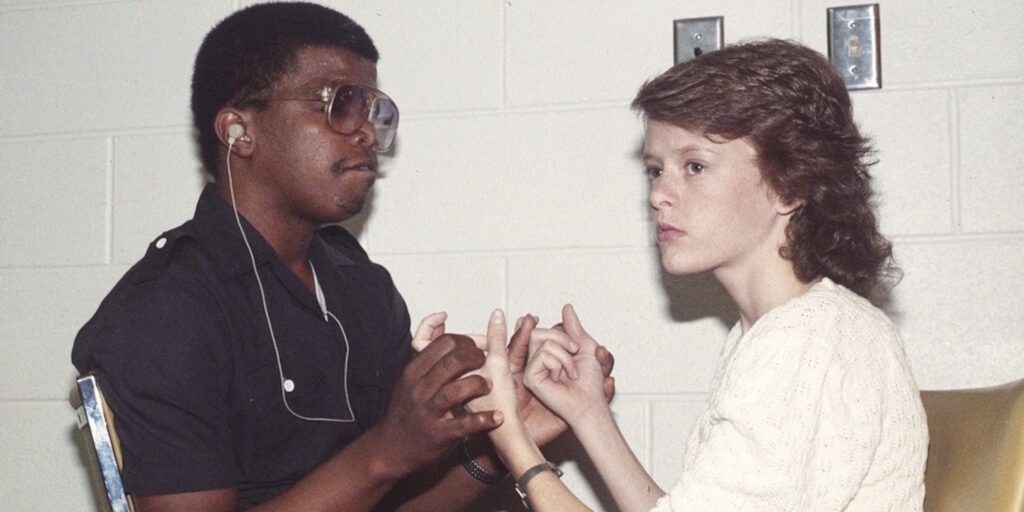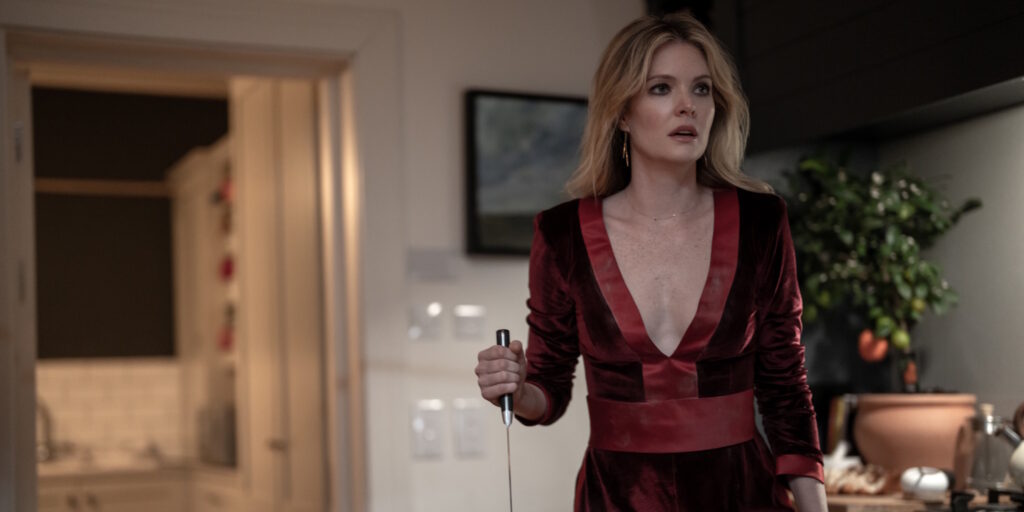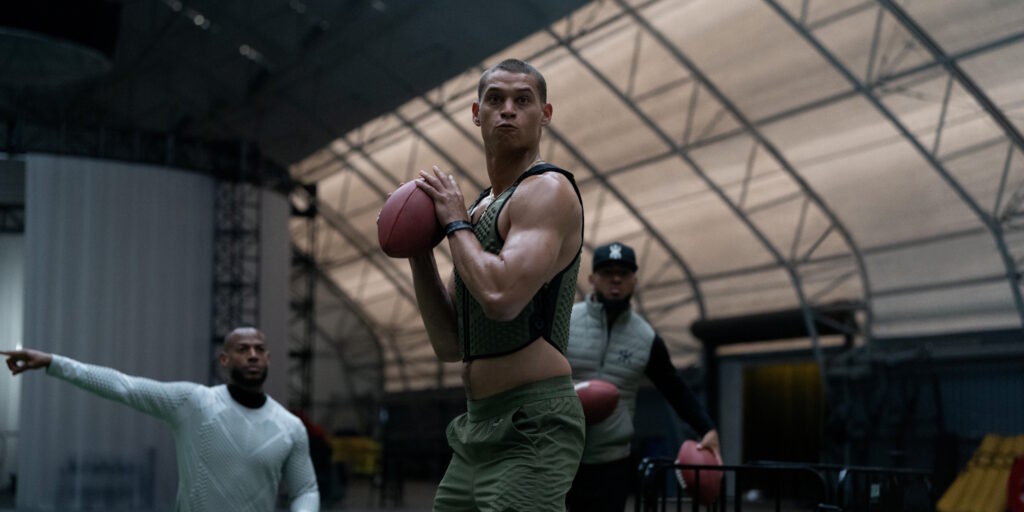Somebody killed Granny Four. It’s the sort of news nobody wants to hear, and yet it surprises no one. That’s because there’s an assumption, a kind of inevitability to her death: It was probably the guy who lived with her. Everyone says he’s a madman. That’s even what they call him: Madman (Kang Chunlei). It should be an open-and-shut case for police chief Ma Zhe (Yilong Zhu). And yet. Like all great rainy procedurals, hazy with cigarette smoke and rolling fog, there’s something deeper and darker afoot in Only the River Flows. Our moody, conflicted lead — the best and, often, the only man for this kind of job — is going to get to the bottom of it. At least, that’s the hope.
As Ma Zhe and his team start questioning locals, deaths continue popping up. The case goes from clear-cut to clear as mud, and pressure from higher-ups in the department — and the looming threat of more killings — heightens what should have been a routine inspection to something much more dangerous and uncertain. Captured on beautifully grainy 16mm by Chengma Zhiyuan, Wei Shujun’s latest feature takes its time wallowing in the ambiance as Ma Zhe narrows down a growing list of suspects, while his personal and professional lives dangle by threads. (Not ideal with a mysterious, knife-wielding killer on the loose.)
Francois Truffaut often praised Alfred Hitchcock for filming murders like love scenes and love scenes like murders. In the decades that have followed their deaths — not to mention the Internet’s ever-waning ability to separate fact from fable — it’s a quote that now gets credited to both filmmakers in equal measure. That’s par for the course, lately: Not since the 1980s, when waning Old Hollywood titans and waxing New Hollywood phenoms shared space at the cinema, has film culture been such a sloppy synthesis of influences, ideas, and styles.
The epigraph of Only the River Flows quotes Albert Camus: “I have assumed the foolish and incomprehensible face of the Gods.” It’s a statement of purpose not only for the aesthetic on display here but also the industry-wide, decade-spanning trend of winking allusion. Director Wei Shujun — a child of the ‘90s himself, born less than two weeks before the release of Jonathan Demme’s seminal Silence of the Lambs (1991) — recreates the period through the lens of film, television, and other pop culture. (A running theme about dismantling an old movie theater and using it as the investigation’s headquarters only underlines this idea.)
With the newcomers of the ‘80s now enjoying Late Eras of their own (assuming they can scrounge up enough cash or convince the right streaming service), the next generation of names hopes to become household status by reminding audiences of other, better movies from 30 or 40 years ago — just like the New Hollywood crowd did before them. It’s a real “allegory of the allegory of the cave” situation, filmic reflections of fading shadows on a crumbling wall from slow-moving objects in front of a dying fire. It hardly matters to audiences who really coined that phrase about love scenes and murder so long as the concept remains.
And remain it does. It’s alive and well in the current generation, who are all nostalgic for the movies being made when they were kids. (Which were in turn hearkening back to films watched when those directors were kids, and it just keeps going back further and further and further….) Like recent release Longlegs, which sees Osgood Perkins — Hey, Anthony Perkins’ kid! Speaking of Hitchcock! — copping ‘90s-by-way-of-‘70s-by-way-of-‘40s film noir tropes, Only the River Flows looks and feels like all the best stuff from 20th-century detective flicks. While it might not have a ton to do, say, subvert, or challenge with this pastiche beyond the simple pleasure of recreating it, there’s no denying it just plain works regardless.
Only the River Flows screens nightly at 7:30 p.m. on Aug. 16 – 18 at the Webster University Film Series.
